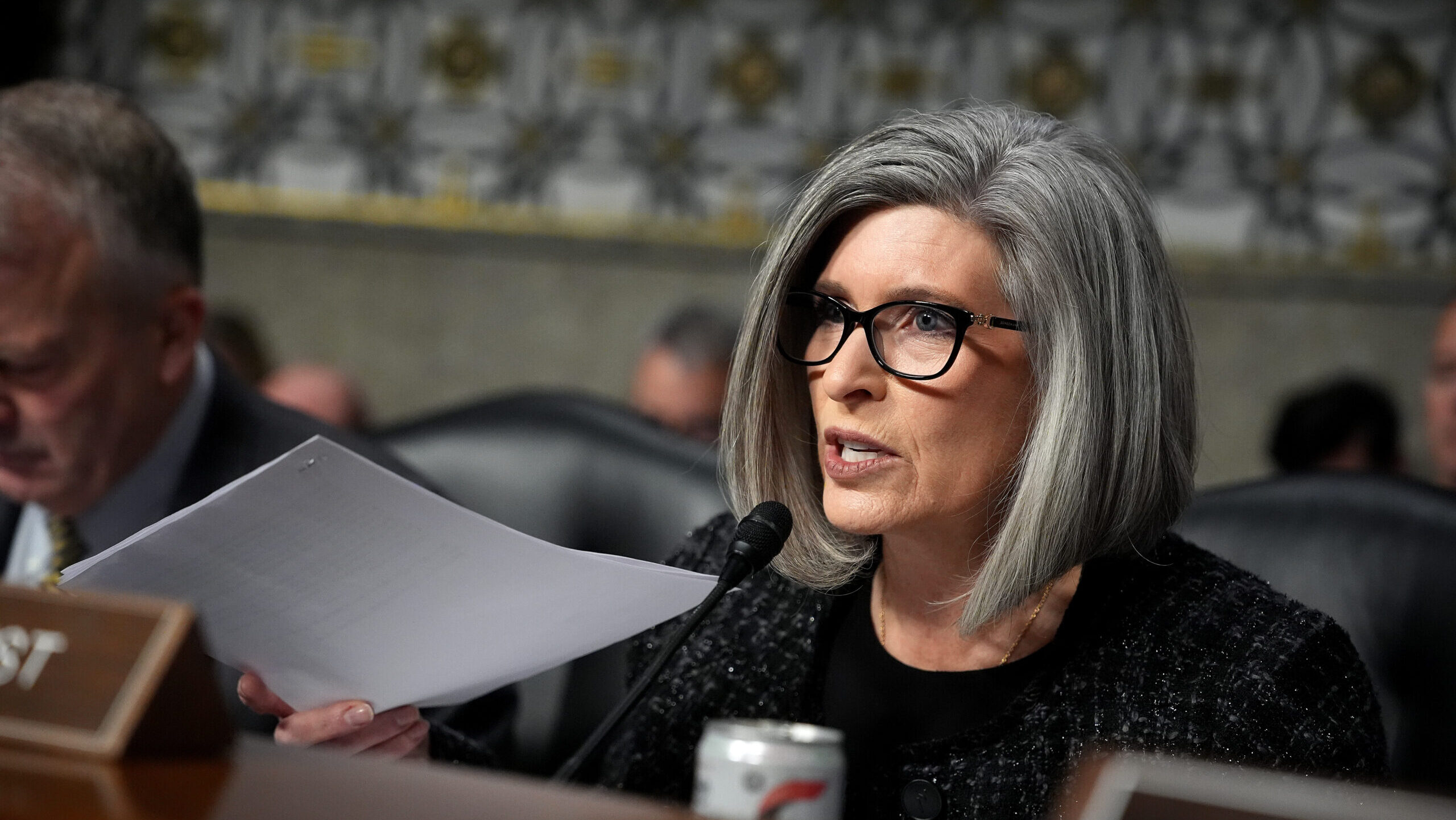WASHINGTON — While all eyes were on the efforts to avert a government shutdown at the end of September, a lesser known tool used by the Pentagon to support small companies was left fighting for its own life: the Small Business Innovation Research program.
As of eight days ago, funding for SBIR lapsed, and while it could be restored, lawmakers are at a hard impasse about whether it should be — at least in its current form.
The program, launched in 1982 and administered by the Small Business Administration, provides seed funding to small businesses for technology development, with the Defense Department as the largest participant of the program.
Proponents say it’s an initiative with a proven track record of success, and that allowing funding to lapse permanently or enact reforms too aggressively will do irreparable damage to the small defense business ecosystem. But critics say it is not fulfilling its mandate, and that changes are needed to bring in new entrants and ensure repeat awardees eventually “graduate” from the program.
“You look at the DoD in particular … 25 companies sucked up 18 percent of the [SBIR] funding at DoD and are not really producing,” Sen. Joni Ernst, chairwoman of the Senate Small Business and Entrepreneurship Committee, said in September at the Center for Strategic and International Studies. “It’s really like a negative investment strategy, because we’re pumping the money in but not getting anything back out.”
For now, the Pentagon has given guidance to companies stating that while current contracts “remain valid unless otherwise directed,” new solicitations are paused and pending awards will only proceed if fiscal 2025 funding is available, a department official told Breaking Defense in a statement.
“While the War Department’s Small Business Innovation Research (SBIR) and Small Business Technology Transfer (STTR) programs’ authorization lapsed, that does not mean ongoing work has been terminated,” the official said, using a secondary name for the Defense Department. “Until reauthorized, we encourage our small business partners to use this pause to assess how their capabilities align with Department needs. Once restored, the program and its functions will swiftly resume.”
It’s the longer term future of the program that appears most murky, in part because of a split in industry and its congressional supporters about how SBIR has, or has not, been exploited by some firms.
At the center of the debate is the Investing in National Next-Generation Opportunities for Venture Acceleration and Technological Excellence (INNOVATE) Act proposed by Ernst, R-Iowa. The INNOVATE Act imposes new rules meant to root out the risks of foreign nations like China gaining control of US technology, and shifts some money from the Small Business Technology Transfer (SBTT) program to a new “Strategic Breakthrough” initiative aimed at helping companies bridge the timeline between developing a new technology and producing it.
However, the bill’s most controversial provision would create a $75 million cap on SBIR funds a company could win throughout its lifetime — a measure meant to force companies to move on from the program and find a wider market for their products in the commercial sector.
Ernst and the venture-backed startup community contend that there are so-called “SBIR mills”— research and development firms that have historically specialized in winning SBIR contracts but do not typically compete for larger defense programs. Those firms, the critics say, soak up most of the funding made available, at the expense of new entrants who could use that money to scale technologies for mass production.
But defenders of the program state that eliminating longstanding SBIR winners would punish companies who have a track record of successfully developing and producing technology for the Defense Department.
“All that we’re saying is that, why can’t everybody compete?” said Jay Rozzi, vice president and principal engineer for Creare, a research and development company that could be forced out of the SBIR program under an award cap. “Why can’t the market be open for everyone?”
A Political Stalemate
The House passed a clean, one-year extension for the SBIR/STTR programs in mid-September. But although that bill was backed on a bipartisan basis by members of the House Small Business Committee, the Senate has yet to vote on the measure.
On Sept. 30, with just hours counting down before the program lapsed, Massachusetts Sen. Ed Markey, the top Democrat on the Senate Small Business Committee, took to the Senate floor to seek agreement to bring the House bill up for a vote, defending the ability for companies to win multiple SBIR awards.
“These programs work because of their merit-based competition nature. Darwinian, paranoia-inducing competition,” he said. “Kicking successful companies out of these programs would be like cutting your highest scorers after winning the NBA title.”
However, Ernst made clear she would oppose any effort to pass a clean extension of the program and offered her own substitute proposal: A 30-day extension, during which the $75 million lifetime cap on awards would be in effect.
“If my colleagues truly oppose even basic safeguards, then this SBIR set-aside charade should end, and taxpayer dollars should be restored to the agency’s R&D budgets where they will better serve our warfighters and strengthen our nation’s competitiveness,” she said in a speech on the floor. “Instead of recklessly extending the status quo for another year, these set aside dollars would simply be returned to each agency. And small businesses can continue to compete for those awards.”
In the end, both Ernst and Markey objected to each others’ proposals, effectively cancelling each other out and leaving the SBIR program in limbo.
RELATED: The $35 billion question: Is SBIR funding delivering for America’s warfighters?
In the wake of the failed vote, bipartisan leaders from two House committees called on the Senate to pass a short-term extension.
“The House came together across party lines to pass a one-year extension that would provide certainty to Main Street while Congress worked toward a strong, long-term reauthorization. Without it, research could be delayed, innovation diminished, and America’s competitive edge on the world stage eroded,” said House Committee on Small Business Chairman Roger Williams, Ranking Member Nydia M. Velázquez (D-NY), House Science, Space, and Technology Committee Chairman Brian Babin and Ranking Member Zoe Lofgren in a Sept. 30 statement.
In a statement to Breaking Defense, a Democratic spokeswoman for the Senate Small Business Committee said that Markey continues to support a one-year extension of the program, which would allow time for both parties to negotiate a longer extension. Otherwise, she said, the SBIR and STTR programs will end.
“Senator Markey will continue to show up to the table and negotiate with Senate Republicans on SBIR/STTR, but the uncertainty for small businesses will be detrimental to innovation,” she said. “By being the only Republican leader to not support the one year extension, R&D funds would go back to the participating agencies, forcing small businesses to compete with bigger businesses. She [Ernst] is leaving small businesses behind.”
A Republican congressional aide responded, “The reason small businesses and others are unable to access funding right now is because of the Schumer Shutdown.” (While the government shutdown is also complicating funding for the SBIR program, SBIR reauthorization can occur independently of solving the shutdown.)
Industry groups and SBIR recipients said there doesn’t appear to be a clear path forward to end the stalemate.
“It does seem to be that there is an impasse,” said Eric Blatt, the executive director of the Alliance for Commercial Technology in Government, which represents startups and the commercial tech sector. “My sense is that there really has not been much progress toward the middle.”
A Need To Reform SBIR?
While the debate on repeat winners of SBIR funds has overwhelmed the discussion over the INNOVATE Act, which the Alliance supports, Blatt said the industry group does not see that issue as its most important reform. Rather, he pointed to the new Strategic Breakthrough initiative meant to help firms transition technologies into production as the “breakthrough reform.”
The SBIR award cap “was priority number five or so in our goals for SBIR reauthorization this year,” he said. “So our viewpoint is that we should find something between massive reforms that kick all these companies out of the program and no reforms at all.”
At the same time, Blatt said that SBIR authorization needs to come with an updated commercialization benchmark that all firms must meet to receive funds.
“There is a lot of resentment in the [startup] community that goes after SBIR awards, that 20 percent of the money is going to companies that are just doing research and development and are not able to create, whether by intent or just lack of capacity, they are not creating products and services that are competitive on the open market,” he said.
However, Alliance chairman Warren Katz noted that some of the organizations’ members want to see Ernst continue her aggressive posture toward rooting out repeat SBIR winners.
“Our constituencies are going to be greatly harmed by the SBIR either being delayed or canceled. The SBIR mill community will actually be positively decimated. They’ll be killed off entirely,” he said. “Now, if you ask some of our membership: Would you just bite the bullet and take whatever deal you can get to get the SBIR program back on track and let the SBIR mills stay in the system, and let them continue to be parasites? Half of our constituency would probably say yes to that question.
“The other half would probably say, ‘Fuck it. Finally clean those bastards out. Get rid of them. I’ll take the hit for a year.’”
When There’s ‘No Commercial Market’
Executives at firms who have repeatedly won SBIR contracts argue that their firms fill a particular niche in the program, as they are scoped to develop and produce low-volume, military-specific technologies for which there is no commercial market — opportunities that venture-backed startups for dual-use tech would not be interested in.
For example, Physical Sciences Inc. is working on specialty battery technology that can be used by the Navy in undersea applications, said William Marinelli, CEO of the Massachusetts-based research and development company. Because those batteries must conform to stricter safety standards than those used in electric vehicles, no commercial option is readily available.
Another such product, created by Creare and sold to the Navy, allows the sea service to repair the landing cables aboard aircraft carriers while at sea, Rozzi said.
“There’s no commercial market for this. There’s no commercial supplier that you could go to find it. There’s no one that you could ask to do the NRE [non-recurring engineering] to develop it, because you’re only going to sell 30 of them, or 36 of them when you make them,” Rozzi said. “That’s where companies like Creare and many of the multiple award winners step in. They have the infrastructure. They can build these things. They can go through the difficult qualification processes. They can withstand the often fickle and non-linear procurement process at DoD.”
Both Marinelli and Rozzi also noted that their companies’ ratio of SBIR work and production contracts has shifted over time. Marrinelli said about 59 percent of PSI’s revenue currently comes from SBIR contracts. However, it used to be the opposite, and will shift again once PSI’s current development contracts switch to their production phase, he said.
Meanwhile, Creare gets “substantially more” of its revenue from non-SBIR sources, Rozzi said, a change that he attributed to the military services making improvements to carry technologies from development to production.
All three SBIR awardees who spoke to Breaking Defense expressed concern about how a long lapse in SBIR/STTR authorization could impact businesses.
“If I were a much smaller company and a startup where I was looking at maybe one or two or three awards that were supporting my company, I would probably be very concerned right now about what’s happening with the program,” Marinelli said. “Assuming that the current state continues for a while, the people who are going to be hurt the most in the short term are going to be the people that INNOVATE seems to want to elevate.”
One CEO from a small technology startup that recently won its first SBIR contract, who asked not to be identified to speak freely about his firm’s financial status, said that the company’s other revenue streams would be enough to keep it going during the government shutdown and reauthorization pause. However, he described the situation as “frustrating,” noting that the lapse had delayed future contracting opportunities that are pivotal for startups seeking to scale.
“For small startups like us, SBIRs are a critical influx of cash, and also they show investors interest from the DoD,” the CEO said. “Especially when the DoD is your main customer, those SBIRs are a lifeline.”
But when asked whether he would like to see Ernst continue to hold out against a clean-sheet reauthorization, the CEO acknowledged that there was no easy answer.
“I would love to see something to start preventing the SBIR mills from taking advantage of the program. But, I mean, I know there’s a lot of nuance to it,” he said.









